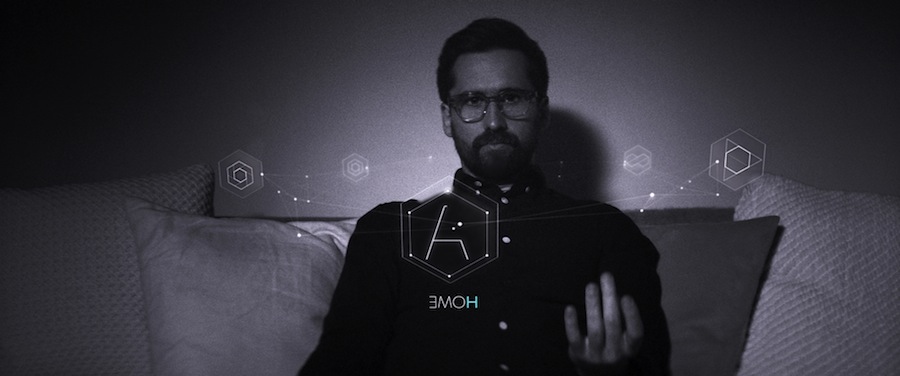‘Creative Control’ “Creative Control” tells us something we likely already know: Given the right gizmo, hipster bros will go full sociopath. (Or moreso.) Set in a recognizably almost-near future New York, Benjamin Dickinson’s sneaky and seductively pretty B&W dramedy imagines a world where the Google Glass doesn’t suck. It’s called Augmenta and, unlike the previous failed iteration, it actually looks like a pair of glasses. Of course, that’s not a great thing. The elegant integration means the wrong people could use it surreptitiously, doing underhanded and icky things on the sly, with no one the wiser. RELATED: Interview: Reggie Watts on “Creative Control” and not being a slave to tech And so we get someone who will definitely use it ickily. David (played by Dickinson) is a young ad exec tasked with spearheading the advertising campaign. He has a live-in girlfriend (Nora Zehetner) who’s a yogi and concerned that her boyfriend has crossed that classic line from idealist into monster. And so he has — with his new gadget, he can and does do things like sneakily record video of Sophie (Alexia Rasmussen), the young gal pal of his douchey, mustachioed bestie, Wim (Dan Gill). He then finds it doesn’t take a techie to create a digital version of her that he can pretend is real. Shooting in clean, consciously Antonioniesque cinemascope frames that are regularly intruded with digital pop-ups, Dickinson creates a steady stream of arresting images. One particularly sticks out: The sight of David in a Williamsburg hotel room, “having sex” with the digital Sophie, her body fizzing in and out of focus like a corrupted hologram as he rocks back and forth. Dickinson’s images are clean but not overly slick. The performances are naturalistic, and scenes often unfold in single takes that stress the humanity of the performances — before technology creeps in and transforms it, usually without most of the characters noticing. RELATED: Interview: Atom Egoyan on “Remember” and wanting to make a happy movie one day Still, is David a flawed test sample? He’s the type of guinea pig who would definitely use an Augmenta (or whatever it’s called when it’s really invented) for things like virtual affairs with his bud’s girl. “Creative Control” may be right about how tech tends to enslave most of its users, but it also threatens to be reactionary and obvious — a big “duh” repeating what a thousand clickbait articles say every day about our eroding social habits. It doesn’t entertain the notion that the Augmenta could, in the right hands, be used for good — that it can be anything over than a sign of humanity’s looming doom. What it does have, though, is a perceptive look at the increasing frazzled nature of today’s young go-getters, who’ve entered a business landscape that works them to death, always requiring them to find and share new distractions. David isn’t just a classic workaholic; he’s representative of a new workforce whose minions are only defined by their jobs, because they have no time for antything else. And it has something even better: While seeming to flatter our beliefs about tech, it’s also implicating us. By choosing an obviously rakish guy bound to be corrupted by the Augmenta, the film is doing something to the viewer that’s similar to “The Wolf of Wall Street.” We see David, with his cool clothes and his yen for booze and cigarettes and his dude-ish friends. We see the ease with which he succumbs to his new toy. We think we’re better than him — that we would never let the ability to go too far let us go too far. And yet a lot of us, even the ones who think themselves enlightened, almost certainly would, all with the ease of our trusty and always buzzing smartphones.
Director: Benjamin Dickinson
Stars: Benjamin Dickinson, Nora Zehetner
Rating: R
3 (out of 5) Globes
‘Creative Control’ is both obvious about tech and sneakily cutting

Magnolia Pictures
Follow Matt Prigge on Twitter @mattprigge


















